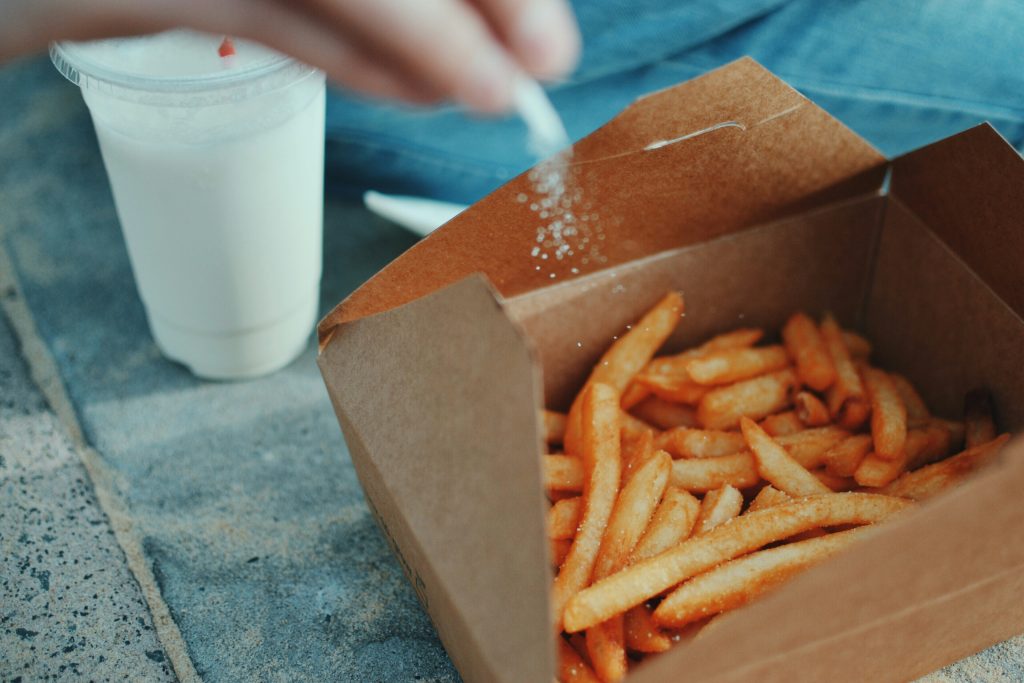
Salt Overload: 7 Warning Signs You’re Consuming Excessive Sodium
We all love a good pinch of salt to elevate our dishes, don’t we? From bringing out the sweetness in desserts to enhancing the flavors of savory meals, salt is undeniably a kitchen staple. But as with many good things, too much can be harmful.
Overconsumption of salt can lead to a host of health issues that we often overlook. Today, let’s dive into the telltale signs that you’re eating too much salt and how to find that perfect balance.

1. Thirst Like a Desert Wanderer
One of the most immediate signs of high salt intake is excessive thirst. When you consume too much salt, your body needs more water to balance the sodium levels in your bloodstream. This can leave you feeling parched and craving water constantly. If you find yourself drinking more water than usual without an obvious cause, it might be time to check your salt intake.
2. Bloated and Puffy?
Ever wake up feeling like a balloon? That could be due to water retention caused by excessive salt. High sodium levels cause your body to hold onto water, leading to bloating and puffiness, particularly around your face, hands, and feet. If you notice rings getting tighter or shoes feeling snug, it could be a sign you’re indulging in too much salty goodness.
3. High Blood Pressure
Consistently high blood pressure is a serious sign that you’re consuming too much salt. Sodium increases the volume of blood in your blood vessels, leading to higher pressure against the vessel walls. Over time, this can strain your heart and arteries, increasing the risk of heart disease and stroke. Regularly monitoring your blood pressure can help you stay ahead of this silent but dangerous condition.
4. Frequent Headaches
Salt-induced headaches are another common sign of overconsumption. High salt levels can cause blood vessels in the brain to expand, triggering headaches. If you experience frequent, unexplained headaches, consider tracking your salt intake to see if there’s a correlation.
5. Kidney Stones and Damage
Your kidneys work hard to balance the sodium levels in your body. Excessive salt intake can strain them, leading to the formation of kidney stones and other kidney-related issues. Painful stones are a clear sign that your kidneys are overwhelmed and it’s time to cut back on the salt.
6. Cravings for Salty Foods
This might sound counterintuitive, but craving salty foods can also indicate that you’re eating too much salt. Your taste buds can become accustomed to high levels of salt, making you crave even more to achieve the same flavor satisfaction. It’s a vicious cycle that can be hard to break but is crucial for your health.
7. Changes in Urination Patterns
Too much salt can affect your bladder and urinary patterns. You might find yourself needing to urinate more frequently as your body tries to expel the excess sodium. On the flip side, severe dehydration caused by too much salt can reduce urination. Both extremes are signals to evaluate your salt consumption.
Finding Balance
So, how can you enjoy your meals without overdoing the salt? Here are a few tips:
- Read Labels: Processed foods are often high in sodium. Always check the labels and opt for low-sodium alternatives.
- Cook at Home: Preparing meals at home gives you control over the amount of salt in your food. Experiment with herbs and spices to add flavor without extra sodium.
- Stay Hydrated: Drinking plenty of water helps your body manage sodium levels more effectively.
- Fresh Foods: Incorporate more fresh fruits and vegetables into your diet. They are naturally low in sodium and rich in essential nutrients.
Remember, the key to a healthy diet is balance. By being mindful of your salt intake, you can enjoy delicious meals without compromising your health. So next time you reach for that salt shaker, think twice and savor the natural flavors of your food.